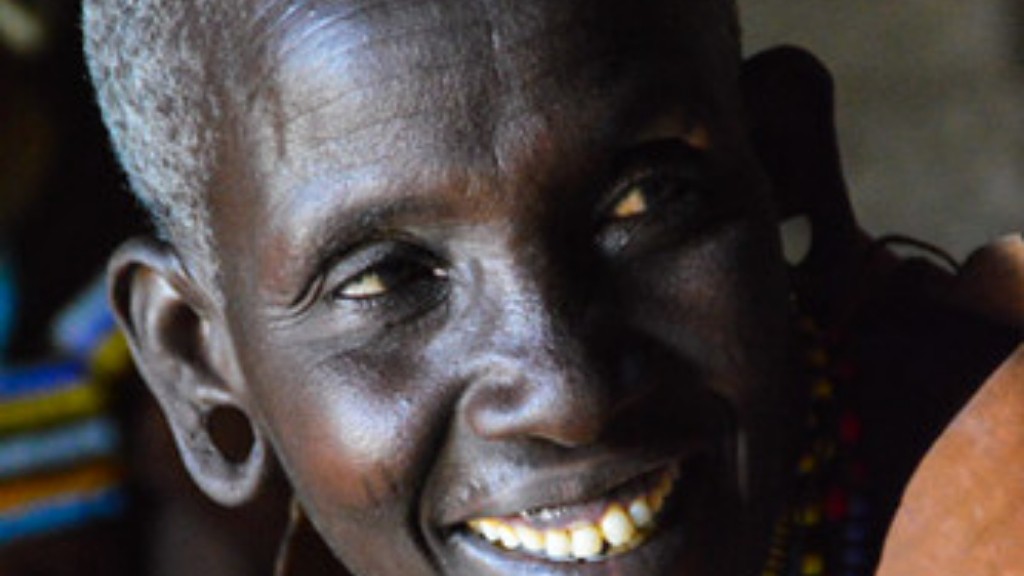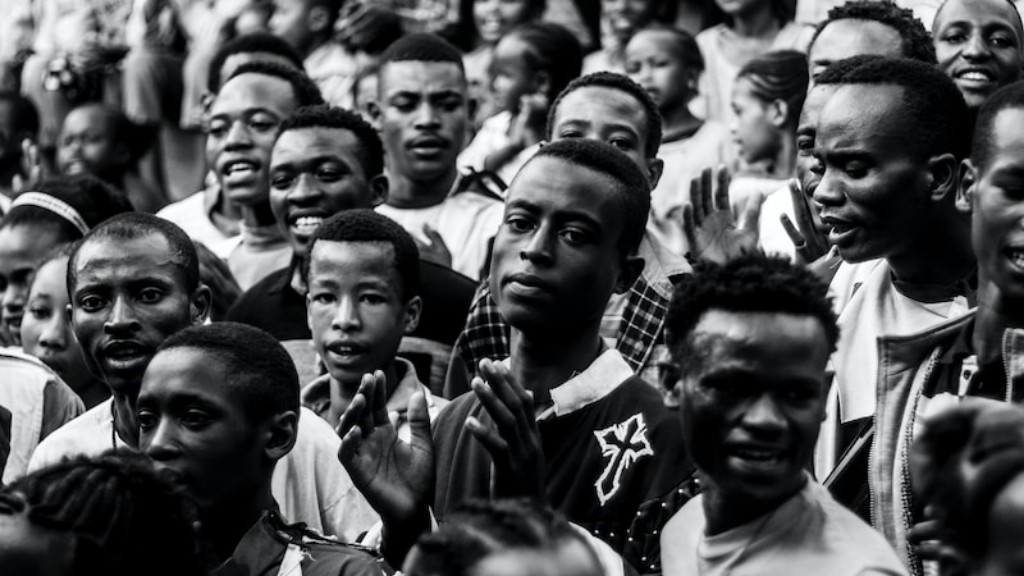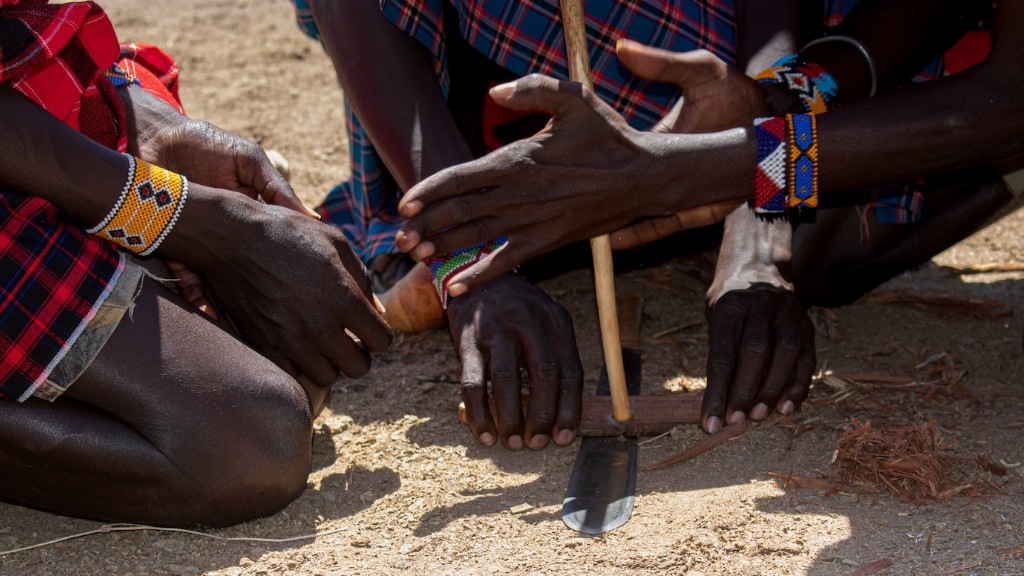Indigenous African tribes are an integral part of Africa’s rich cultural heritage. With over 2,000 different tribes spread across the continent, these diverse communities have distinct languages, customs, traditions, and belief systems.
Many indigenous African tribes have a deep connection with nature and live in harmony with the environment. They possess extensive traditional knowledge of plants, wildlife, and ecosystems, which has been passed down through generations.
An example of such tribe is the Maasai tribe of East Africa. They are known for their vibrant traditional attire, elegant beadwork, and unique hairstyles. The Maasai people have traditionally been nomadic herders, relying on their cattle for sustenance. However, due to modernization and environmental challenges, their way of life is facing increasing pressure.
Another prominent indigenous tribe is the Himba people of Namibia. They are renowned for their reddish skin color and intricate hairstyles adorned with red ochre. The Himba maintain a semi-nomadic lifestyle and have preserved their ancestral traditions, including their complex social structure and cattle-based economy.
It is important to recognize and respect the indigenous African tribes’ rights to self-determination and cultural preservation. Many of these communities face various challenges, including land encroachment, language erosion, and the loss of traditional practices.
Furthermore, the rapid modernization and urbanization of Africa pose a threat to the cultural identities of these tribes. The younger generations often face a difficult choice between embracing modernity and preserving their traditional heritage.
Experts emphasize the significance of creating sustainable development strategies that promote the well-being and cultural preservation of indigenous tribes. This involves ensuring their access to education, healthcare, and economic opportunities while respecting their customs and values.
The Importance of Cultural Diversity
The cultural diversity of indigenous African tribes is invaluable. Not only do these tribes contribute to the colorful tapestry of African heritage, but they also bring unique perspectives and knowledge to the world.
Their traditional ecological practices, such as rotational farming and natural resource management, can offer valuable insights in the face of climate change and environmental degradation. By recognizing and supporting indigenous knowledge systems, we can strive towards a more sustainable future.
Furthermore, the preservation of indigenous languages is crucial. Language is an essential part of cultural identity, and with each language that becomes extinct, we lose a significant piece of our collective human history.
Efforts are being made to document and revitalize endangered languages through community-based language programs and education. By embracing linguistic diversity, we can foster a society that celebrates and respects all cultures.
In conclusion, indigenous African tribes play a vital role in the cultural fabric of the continent. It is essential to support and empower these communities, ensuring their rights, and working towards inclusive and sustainable development.
The Challenges Faced by Indigenous African Tribes
Although indigenous African tribes are resilient, they face numerous challenges in today’s world.
One of the main challenges is land encroachment. As population pressures increase and natural resources become scarce, indigenous communities often find their ancestral lands threatened by large-scale development projects, mining operations, and land grabbing.
Language erosion is another significant issue. Many indigenous languages are not officially recognized, and the younger generations are gradually shifting towards dominant languages. This loss of linguistic diversity can lead to the erosion of cultural practices and traditions.
Another pressing concern is the marginalization and discrimination faced by indigenous tribes. They often have limited access to basic services such as healthcare, education, and clean water, leading to high poverty rates and socioeconomic disparities.
Furthermore, the loss of traditional knowledge is a profound loss for humanity. Indigenous tribes hold a wealth of knowledge about their local ecosystems, medicinal plants, and sustainable agricultural practices. This knowledge is at risk of being lost forever if not preserved and passed down to future generations.
Preserving Indigenous Knowledge and Cultures
Preserving indigenous knowledge and cultures is not only a responsibility but also an opportunity for Africa and the world.
Education plays a crucial role in this process. By incorporating indigenous knowledge systems into formal and non-formal education, we can ensure that future generations understand and appreciate the value of their cultural heritage.
Additionally, supporting community-led initiatives and projects that empower indigenous tribes economically can help alleviate poverty and foster cultural resilience. This could include promoting traditional arts and crafts, ecotourism, and sustainable livelihoods that align with their traditional values.
Collaboration with indigenous communities is essential in decision-making processes that affect their lands and resources. Ensuring their active participation and recognizing their rights to self-determination is crucial for the preservation of their cultures and identities.
In conclusion, preserving indigenous knowledge and cultures is a collective effort that requires collaboration, empathy, and respect for the rights of indigenous African tribes. By embracing their wisdom, we enrich ourselves and create a more inclusive and sustainable world.
Indigenous Rights and Advocacy
The recognition and protection of indigenous rights are essential for the well-being of indigenous African tribes.
International and regional frameworks, such as the United Nations Declaration on the Rights of Indigenous Peoples, provide a foundation for advancing the rights of indigenous communities.
Advocacy groups and organizations, both within Africa and globally, play a crucial role in raising awareness and supporting indigenous causes. They work towards ensuring legal frameworks that protect indigenous rights, promoting cultural preservation, and fighting against discrimination and marginalization.
It is through collective action and solidarity that we can create a world where indigenous African tribes are respected, empowered, and their voices are heard.





